ATI RN Nutrition Exam (6 New Latest Versions, 2021)/ATI RN Proctored Nutrition Exam
Preparing for the ATI RN Nutrition Exam can be a daunting task, but with the right study materials, you can improve your chances of success. This exam covers various topics related to nutrition and requires a deep understanding of dietary requirements, nutritional supplements, and dietary management for specific health conditions.
Below are a few sample questions that you might encounter in the ATI RN Nutrition Exam:
- What is the first action a nurse should take when caring for a client who wants to lose weight?
- What should be included in the teaching for a client starting a vegetarian diet?
- Which nutritional supplements should a nurse anticipate providing to a client with acute inflammatory bowel disease?
- How should a client newly diagnosed with type 1 diabetes mellitus count carbohydrates?
- Which food has the highest amount of calcium for a client with osteoporosis?
- What dietary factors should be considered for blood pressure management in a client with hypertension?
These questions cover a range of topics that are crucial for any nurse to understand when it comes to providing optimal nutritional care for their patients.
For more practice questions and detailed explanations, you can consider using Test Banks or Solution Manuals specifically designed to help you prepare for the ATI RN Nutrition Exam.
FAQs
Q: What is the ATI RN Nutrition Exam?
The ATI RN Nutrition Exam is a test that assesses a nurse’s knowledge and understanding of nutrition-related topics for providing effective care to patients.
Q: How can Test Banks help with preparing for the exam?
Test Banks provide additional practice questions and detailed explanations that can help you test your knowledge and improve your understanding of the material covered in the exam.
Q: Where can I find Test Banks and Solution Manuals for the ATI RN Nutrition Exam?
You can find Test Banks and Solution Manuals online through various platforms that specialize in study materials for nursing exams.
Conclusion
Success in the ATI RN Nutrition Exam requires a solid understanding of various nutrition-related topics and the ability to apply that knowledge in clinical scenarios. Utilizing resources like Test Banks and Solution Manuals can enhance your preparation and help you approach the exam confidently.
Proper nutrition plays a crucial role in managing various health conditions, such as diabetes mellitus, dumping syndrome, and hypertension. Nurses play a vital role in educating clients about dietary habits and providing essential information to promote overall well-being. Let’s take a closer look at some key assessments and interventions related to nutrition in healthcare:
18. A nurse assessing a client with diabetes mellitus should identify diaphoresis as a manifestation of hypoglycemia.
19. For a client with dumping syndrome, the nurse should include remaining upright for 1 hour following meals in the plan of care.
20. Post-gastric bypass dietary teaching should include instructions to eat six small meals per day.
21. To reduce diarrhea in a client receiving continuous enteral feeding, the nurse should decrease the rate of the feeding.
22. A client taking MAOIs should avoid consuming foods like cheddar cheese to prevent adverse effects.
23. When teaching a client with hypertension about decreasing sodium intake, the nurse should recommend seasoning foods with herbs and spices.
24. Regarding breast milk use and storage, the nurse should inform the client that thawed breast milk cannot be placed back in the freezer.
25. An adolescent with celiac disease should eliminate rye from their diet as part of treatment.
26. A client with a sodium level of 150 mEq/L is likely experiencing dehydration.
27. Making nutrient-dense food choices includes selecting options like canned pinto beans over refried beans.
28. In a prenatal education class about breastfeeding, instructing to plan 5-min feedings on each breast on the first day after birth is essential.
29. Dysphagia following a stroke may present with voice changes after eating.
30. A community health nurse can promote weight management for cardiovascular health by providing education on healthy eating habits and regular physical activity.
These scenarios highlight the importance of tailored dietary interventions for clients with various health conditions. Nurses play a vital role in educating and supporting individuals to make informed choices that promote their overall health and well-being.
## FAQ Section
### 1. How can nurses help clients manage diabetes through diet?
Nurses can help clients with diabetes by educating them about monitoring blood sugar levels, following a balanced meal plan, and understanding the impact of different foods on their blood sugar.
### 2. What dietary recommendations are important for clients with hypertension?
Clients with hypertension should be advised to reduce their sodium intake, increase consumption of fruits and vegetables, and follow a heart-healthy diet to help manage their blood pressure.
### 3. How can nurses support clients with gastrointestinal issues like dumping syndrome?
Nurses can support clients with dumping syndrome by educating them about dietary modifications, such as avoiding simple sugars, eating smaller, more frequent meals, and staying upright after meals.
## Conclusion
Nutrition plays a vital role in overall health and well-being, especially for individuals managing chronic conditions. Nurses are key educators in providing essential information and support to help clients make informed choices regarding their diet. By understanding specific dietary needs and interventions for different health conditions, nurses can empower clients to adopt healthy eating habits and improve their quality of life.



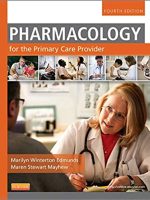
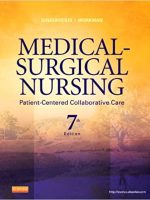
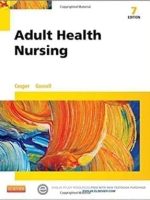
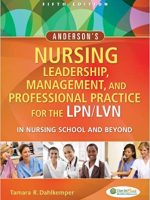
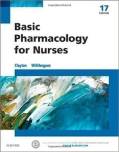


Be the first to review “ATI RN Nutrition Exam(6 New Latest Versions 2021)”